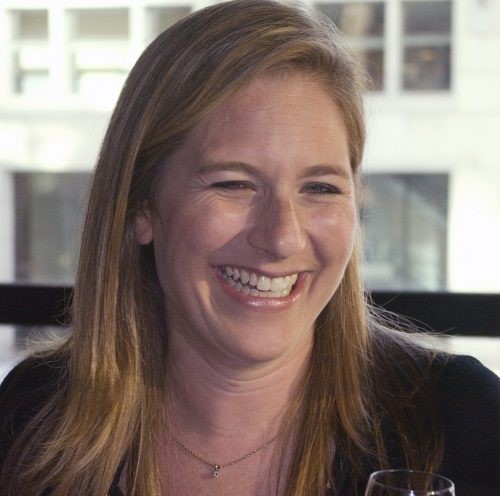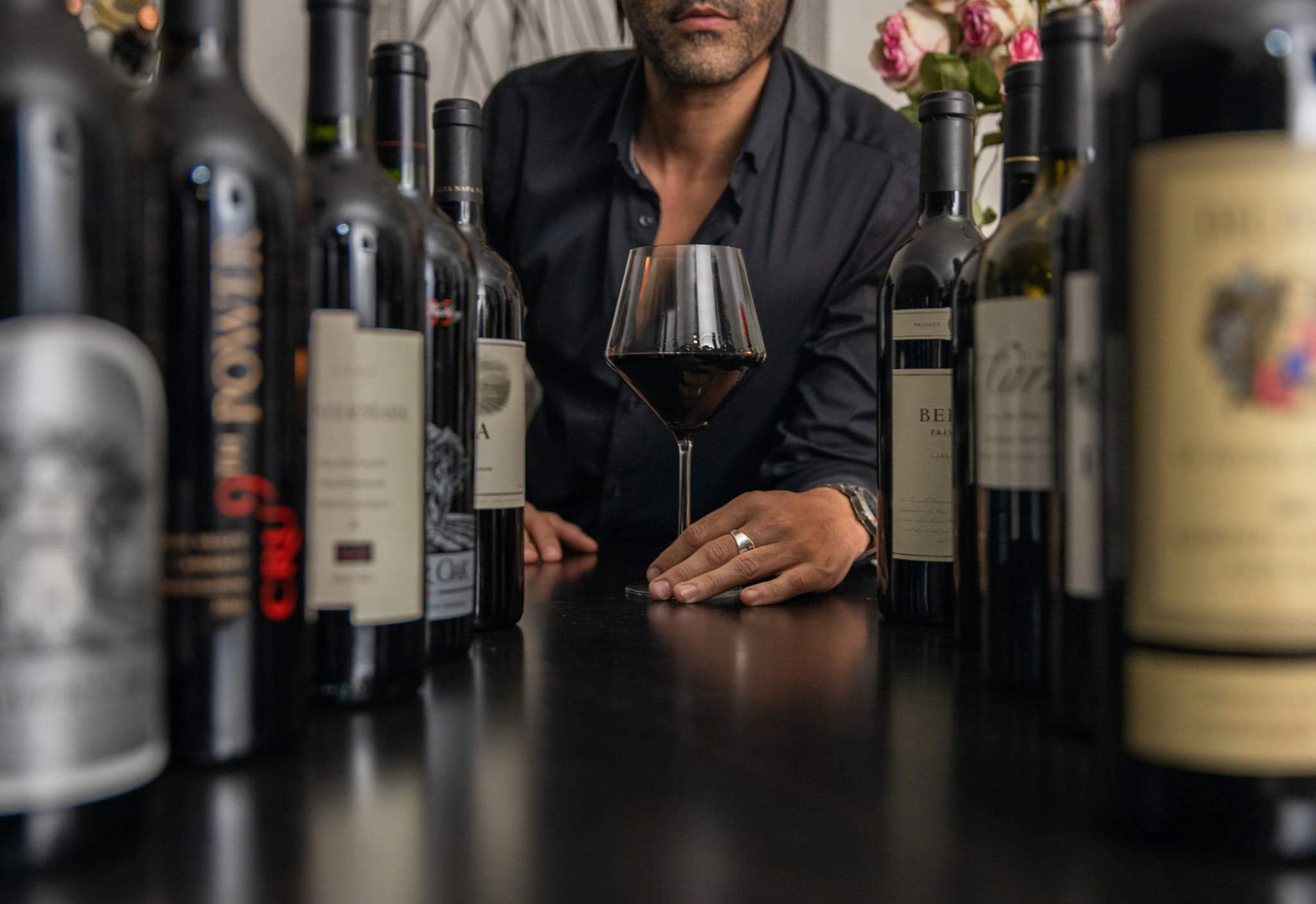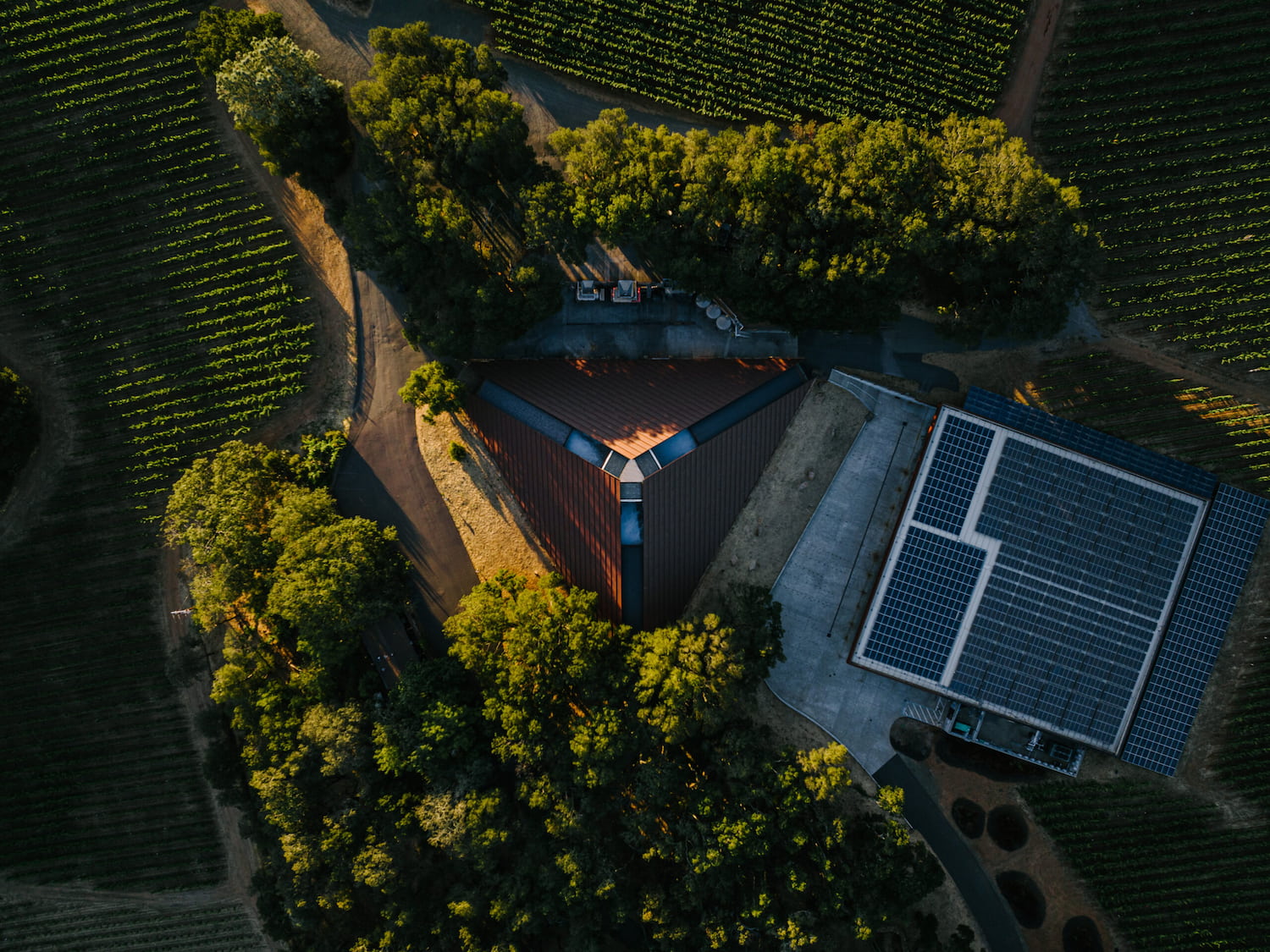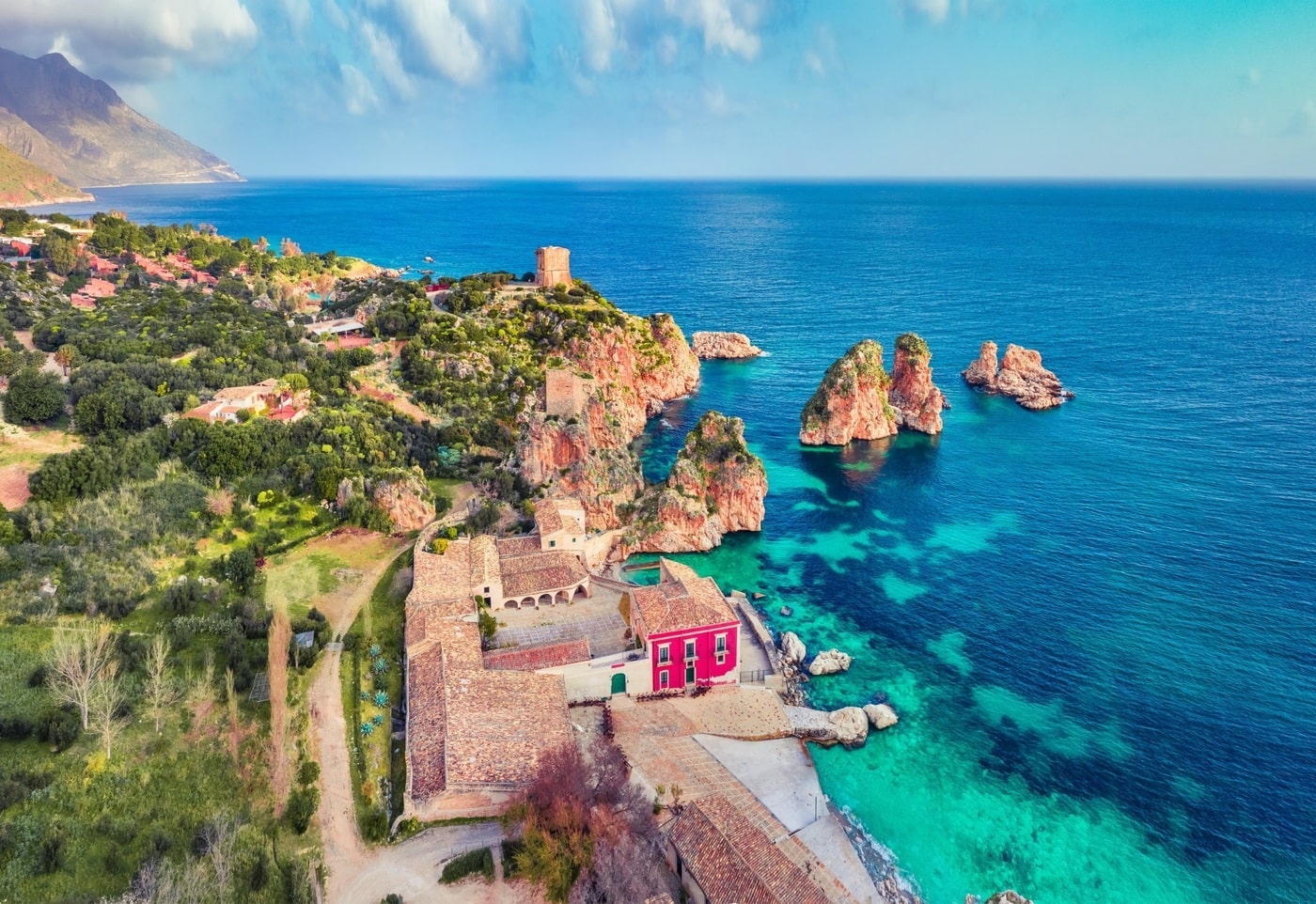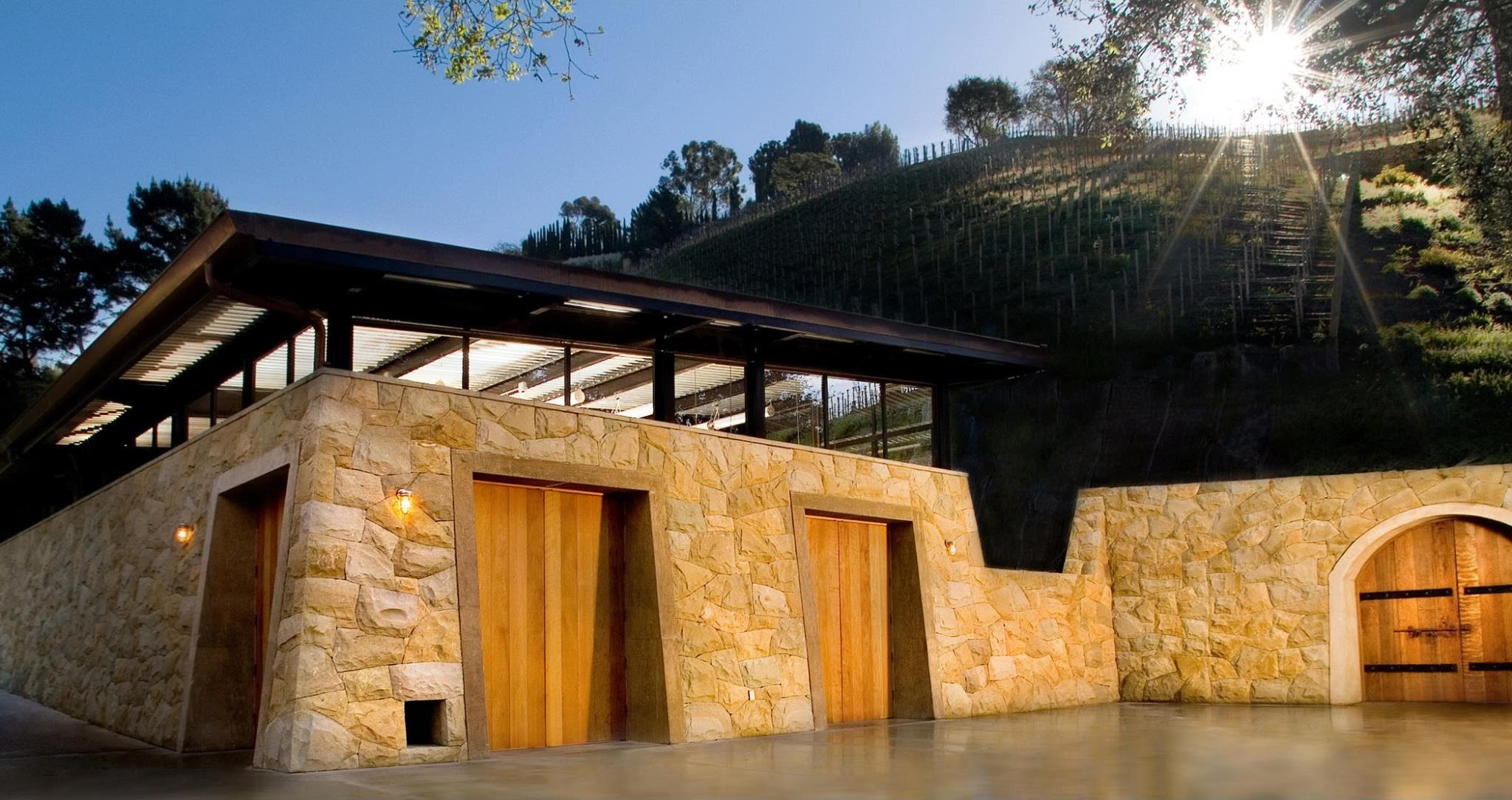There is a likely chance you have not heard of the Suisun Valley but an equally likely chance you have had wines made from grapes from the Suisun Valley. How is that possible? Where is the Suisun Valley? What is the Suisun Valley? Well, after reading this, you might start saying, “See you in Suisun!”.
The Suisun Valley lies on the backside (southeast side) of Napa Valley where the two regions share a county line. The Suisun Valley is not a new region. In fact, grapes have been cultivated in this area since the 1800s. The Suisun Valley American Viticultural Area (AVA) was established in 1982, making it the 12th AVA established in California. And, in 1983, the Suisun Valley was inducted into the North Coast AVA which includes the AVAs of Napa and Sonoma. It is under the North Coast AVA that you have likely had a wine from the Suisun Valley.
Originally home to the Patwin tribe, the name “Suisun” is a Patwin word that means “where the west wind blows”. Surrounded by the Vaca Mountains and the St. George range, the Suisun Valley is also influenced by the San Pablo and Suisun Bays. In a Mediterranean climate with a marine influence, cool winds come in from the bays and help the grapes mature.

Only eight miles long and three miles wide, there are three distinct climate zones. The “lower valley” is windy and the coolest part where even Pinot Noir can grow; the “mid-valley” is where the winds are buffered by the mountains resulting in idyllic growing conditions for a variety of grapes; the “upper valley”, the warmest area, is where the canyons lead into Napa Valley.
There are more than 3,000 acres planted to more than 28 varieties of wine grapes in the Suisun Valley. The primary red grape is Petite Sirah but other red grapes include Cabernet Sauvignon, Zinfandel, Cabernet Franc, Merlot, Syrah, Sangiovese, Tempranillo, Barbera, Teroldego, Grenache, Carignane, Mourvedre, Primitivo, Aglianico, Malbec, Chabono, and even Pinot Noir. White grapes include Chardonnay, Chenin Blanc, Albarino, Gewurztraminer, Pinot Grigio, Sauvignon Blanc, Viognier, Riesling, and more.
Eighty percent of the vineyards in the Suisun Valley are family-owned, and all are Certified California Green. There are 12 small, family-owned wineries welcoming guests to taste their wines. Next time you head to Napa, perhaps head to the back side of Napa Valley and visit one of these wineries in the Suisun Valley.
Steve and Linda Tenbrink drove through the Suisun Valley on the way from the Bay Area to Lake Berryessa. They found a property in 1982, built a house, planted a fruit orchard, and built a fruit stand. But in 1996 Steve began growing grapes and selling them. One of the winemakers he sold wine to told Steve that if he built a winery, he would teach him how to make wine. And, in 2007, Steve started Tenbrink Family Winery. Making only 200 cases of wine per year, Steve is very hands-on, using native yeasts and fermenting in puncheons.
Tenbrink Family Winery 2019 Assyrtiko, Suisun Valley ($32) – A grape typically found on the island of Santorini in Greece, a small amount is grown in the Suisun Valley, and 2019 marks the third vintage for Steve. The wine has nutty and mineral notes with a touch of floral aromas. On the palate, the wine has a full-bodied texture and finishes with notes of citrus and honey.
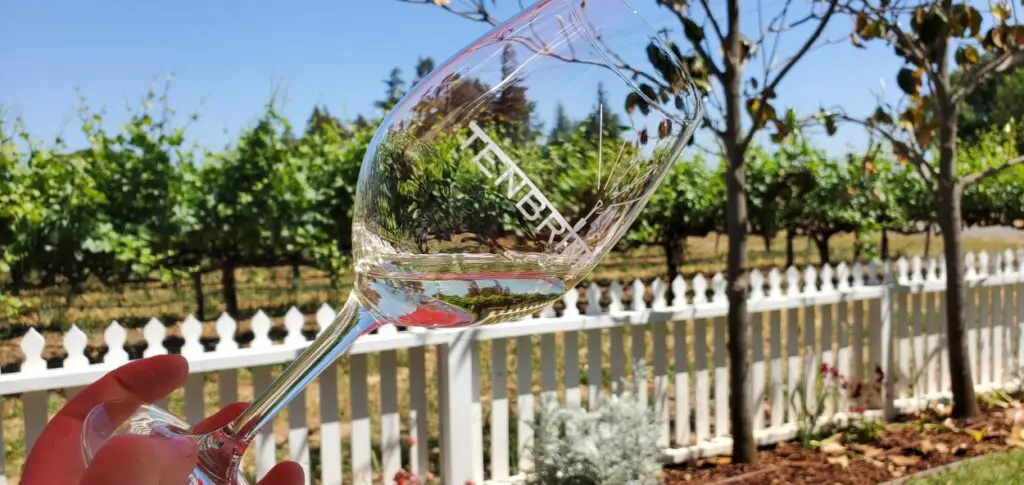
Tenbrink 2016 Estate Petite Sirah, Suisun Valley ($100) – Suisun Valley is considered the “Petite Sirah capital” and this is a beautiful expression of the grape. Intense notes of blueberry, prunes, cocoa, sweet tobacco and black pepper jump out of the glass. Deep, dark, rich, and bold yet finishes elegantly with bright acidity.
Raised on the Tenbrink farm, Lisa Tenbrink Howard swore she would never work in agriculture. She “ran away” and studied engineering. But ultimately, Lisa moved back with her husband Cliff Howard and in 2015 they started Tolenas Winery. An extension of Tenbrink Family Winery, Tolenas produces 1300 cases per year.
Tolenas 2020 Eclipse White Pinot Noir, Suisun Valley ($35) – In 2017, during the American eclipse, Lisa decided to keep some of the Pinot Noir that she typically sold to the Biltmore Estate in North Carolina. She made her first vintage of white Pinot Noir and has been doing it every year since. 313 cases are made of this fresh and elegant wine with aromas of strawberries, cherries, white nectarine, grapefruit, and a touch of watermelon.

Tolenas 2017 Red Blend, Suisun Valley ($50) – Instead of making six different wines from six different grapes, they decided to blend them all together. 60% Petite Sirah, 25% Zinfandel, and 10% Cabernet Sauvignon, with a splash of Tempranillo, the blend is aged in mostly neutral French and Hungarian oak. The result is a wine with dark red and black fruit, spice, and floral notes, sweet fruit tannins, and good acidity.
Founded by Frank and Liz Vezér in 2001, they produced their first Zinfandel in 2003. Since then, they have added more varieties, including Verdelho, Sauvignon Blanc, Cabernet Sauvignon, Petite Sirah, Merlot, and more. Jacob Stuessy has been the winemaker since 2011, after starting as a harvest “grunt” in 2007. The charming Blue Victorian house, a historic landmark in the Suisun Valley, is home to one of the ever-popular tasting rooms of Vezér Family Wines
Vezér Family Vineyard 2020 Franci Verdelho, Suisun Valley ($35) – Coming from a small 2.5-acre hillside vineyard on the estate, the seventh vintage of this wine is made by foot stomping whole clusters, partial fermentation in oak, and four months on the less. Intense aromatics of stone fruit, melon, and ginger give way to a creamy midpalate and a honeyed finish.
Vezér Family Vineyard Cassie 2016 Petite Sirah, Suisun Valley ($56) – If looking for an “easy-drinking” Petite Sirah, this is it. Notes of boysenberry, blackberry, and cocoa lead to full-bodied wine with a broad texture and a hint of sweetness on the finish.
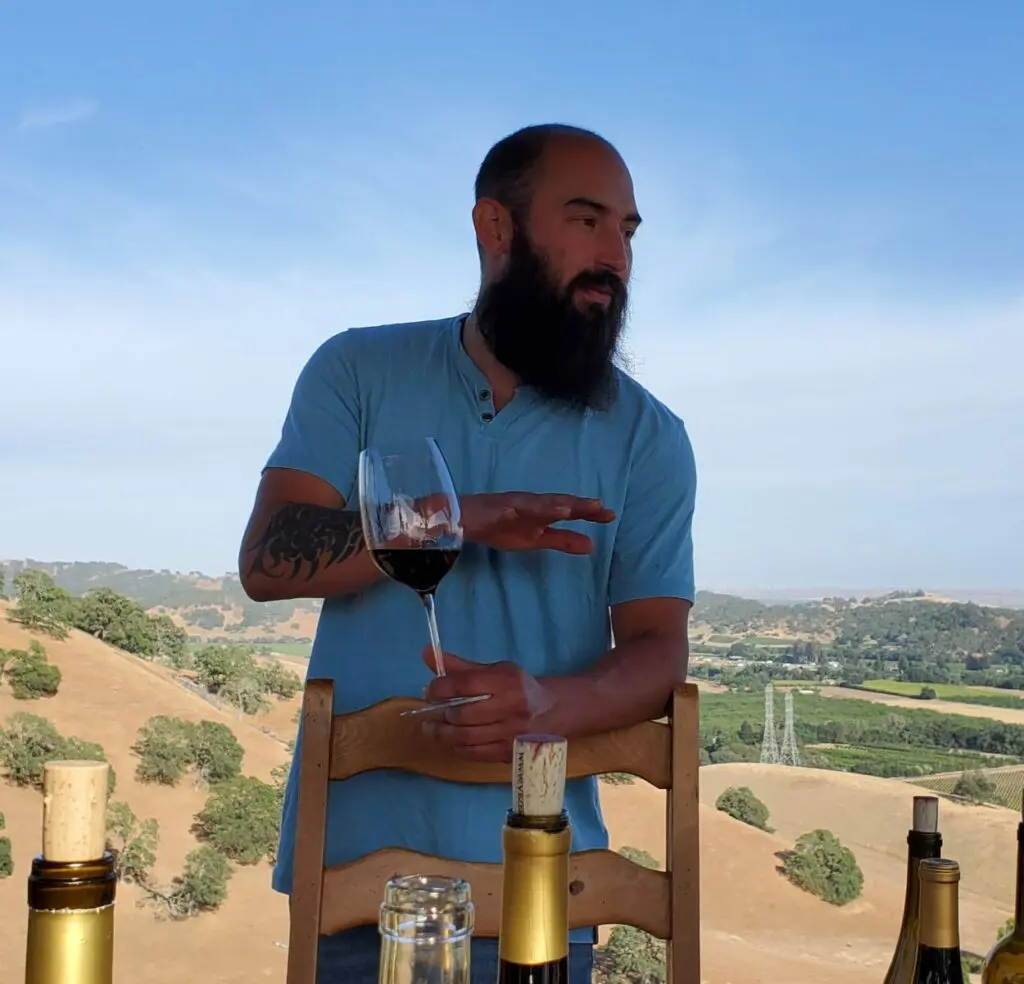
Brian Babcock is a fourth-generation farmer and a first-generation winemaker. His family moved to the Suisun Valley when he was five years old. They started farming fruit trees but thirty years ago they replaced the fruit trees with grapes. Brian studied viticulture and enology at UC Davis and worked in Napa before returning to his family’s property in 2016. Suisun Creek Winery produces all estate wines from their 80 acres and produces 900 cases of wine per year.
Suisun Creek Winery 2020 Rosé, Suisun Valley ($20) – Made from the rarely planted Charbono grape, the grapes are hand-picked and go directly to the press where they spend two hours on the skins. The result is a shockingly bright and attractive cherry Jolly Rancher pink color. Notes of cherry, watermelon, and rose blossom open to a refreshing wine with a candied flavor on the finish.
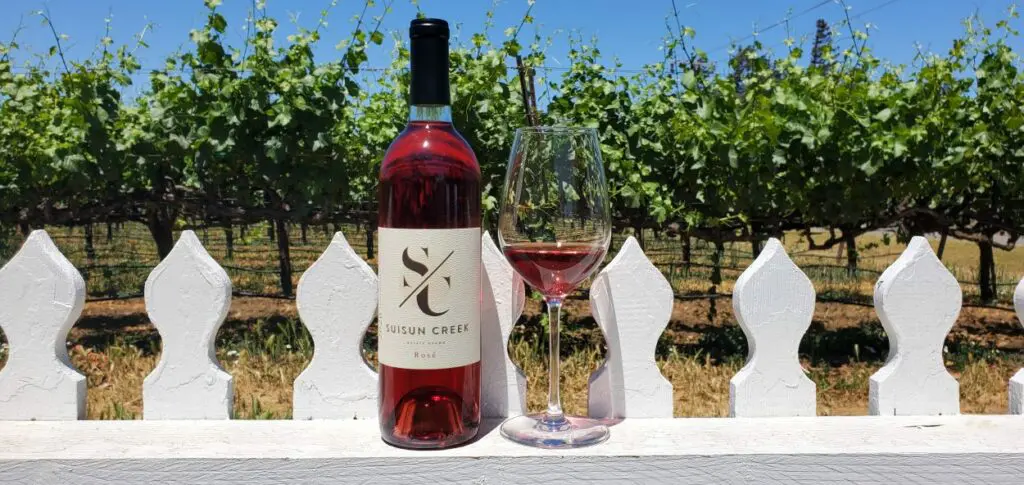
Suisun Creek Winery 2017 Estate Petite Sirah, Suisun Valley ($44) – Big fruit aromas of blackberry, boysenberry, black cherry, black currant, cola, and stewed prunes, this Petite Sirah has a rich, full body with smooth tannins.
Wooden Valley Winery was founded in 1933, after prohibition, by two Italian brothers, Salvatore and Emmanuel Brea. Mario Lanza moved to the Suisun Valley after a workplace incident. He knew the brothers and became a partner in 1944 and became the sole owner in 1955. Today Wooden Valley Winery is run by Mario’s four grandsons. Rick is the winemaker, Ron handles the business and marketing, and Larry and Ken manage the vineyards. Wooden Valley Winery is the oldest winery in Suisun Valley, and they produce 10,000 cases of wine per year from their 400 acres of vineyards.
Wooden Valley 2018 Merlot, Suisun Valley ($25) – With 14% Cabernet Sauvignon blended in, this is a very enjoyable, easy-drinking Merlot. It has pretty notes of cherries, blackberries, and cocoa with a hint of vanilla and on the palate, the medium-bodied wine has a silky finish.
Lanza 2019 Sangiovese, Suisun Valley ($27) – A medium-bodied wine, this Sangiovese has aromas of black raspberry, black cherry, blackberry, cola, and sweet tobacco and finishes with juicy tannins.

Mangels Vineyards is a partnership between Gary Mangels and Gina Richmond whose families both have a long history in the Suisun Valley. Gary’s family arrived in the valley in 1866 and began producing wine in 1906. Gina’s family arrived in the valley in 1890 and grew fruits and vegetables. In 1988, Gary purchased land and planted 35-acres of vines in 1991. He and Gina, who is the winemaker, founded Mangels Vineyards in 2009
Mangels Vineyards 2019 Pinot Grigio, Suisun Valley ($17) – Picked at low sugar levels to maintain freshness, fermented in concrete eggs, and stirring the lees, the wine has green apple, stone fruits, and floral notes and a lovely mid-weight on the palate.
Mangels Vineyards 2018 Reserve Petite Sirah Suisun Valley ($35) – A bold wine with fresh aromas of blackberry, boysenberry, black cherry, and spice, the wine is vibrant on the palate with smooth tannins and a lingering finish.
With a commitment to ecological responsibility, BackRoad Vines practices biodynamic farming, as well as recycles packaging materials, and up-cycles their byproducts. Specializing in Syrah, Cabernet Sauvignon, and red blends, BackRoad Vines hand-picks all grapes and ferments them in small vessels to produce distinctive wines.
BackRoad Vines 2017 Mule, Suisun Valley ($69) – A blend of Petite Sirah and Syrah, this bold wine has notes of blackberry, stewed prunes, clove spices, and black pepper.
Caymus is a known name in the wine industry, having been an established brand in Napa Valley since the 1970s. Seeing the potential of the Suisun Valley, Caymus started working in the valley in 2014 and is currently planning to open a tasting room.
Caymus-Suisun Grand Durif Petite Sirah 2018 ($60) – Plum, blackberry, black cherry, black pepper, cedar, tobacco, and a touch of vanilla aromas on the nose. On the palate, the wine is full-bodied with beautiful acidity, structured tannins, and a lingering, juicy finish.
More than just a tasting room, the Suisun Valley Co-Op is an incubator for smaller wineries. Founded in 2007, it is currently home to three wineries, Sunset Cellars, Blacksmith Cellars, and King Andrew Vineyards. Current owner Fah Sathirapongsasuti began going to the Co-Op to learn about wine and after meeting the winemakers, he was drawn in.
Sunset Cellars – Doug and Katsuko Sparks began Sunset Cellars in 1997, making wine in their garage in the Inner Sunset District in San Francisco. They founded the Suisun Valley Wine Co-Op as a tasting room for their wines and started making their wines there, including Barbera, Old Vine Zinfandel, Carignan, Petite Sirah, Charbono, and more.
Black Smith Cellars – Owner Matt Smith founded Blacksmith Cellars in 2003 with Cabernet Sauvignon and Chenin Blanc as his flagship wines. Matt loves to work with lesser-known varieties, such as Torrontes, Verdelho, Counoise, and Nero d’Avola, as well as playing with aging in bourbon casks and botanical infusions.
King Andrews Vineyards – After growing grapes for many years, Roger and Carol King decided to become winemakers. Their first Syrah was in 2005; their first Cabernet Sauvignon was in 2007; they began making Albarino in 2008.
Located at Mankas Corner, the meeting hub of the Suisun Valley, the Suisun Valley Filling Station is a vintage gas station-inspired tasting room. Founded by Wendy DeCoito in 2018, the wine bar features locally produced Suisun Valley wines. In addition to featuring local producers, there are wines produced under the Filling Station label, such as “Faith” Sauvignon Blanc, “Friendship” Cabernet Blend, “Love” Zinfandel, and “Gratitude”.
Suisun Valley Filling Station 2019 Gratitude, Suisun Valley ($32) – A red blend of Rondinella and Corvina, two grapes traditionally found in Northern Italy, the grapes were handpicked and foot stomped. A light, transparent red wine, it has dark cherry, bramble aromas, and is light-bodied and fun. Best served chilled.
A visit to the Suisun Valley is not complete without a visit to Il Fiorello Olive Oil Company. Founded in 2005 by Ann Fiorello Sievers and Mark Sievers, they have more than 3000 trees and 13 varieties of French, Italian, Spanish, and Greek olives. They built a mill on the property where they produce award-winning olive oils.
Olive oil tastings are offered daily and include a comparative tasting of Extra Virgin Olive Oils, Co-Milled Oils, and Balsamic Vinegar Reductions as well as a chef-crafted food pairing. Cooking classes, both demonstrations and hands-on, are offered. Or enjoy a prix fixe lunch while looking out at the olive trees. Il Fiorello Olive Oil Company also hosts fun events, such as the lavender festival.
The Suisun Valley has the rustic charm of the Napa Valley in the 1960s and there is much to discover. Remember, the Suisun Valley may be on the backside of Napa but that backside is “shaping up”!
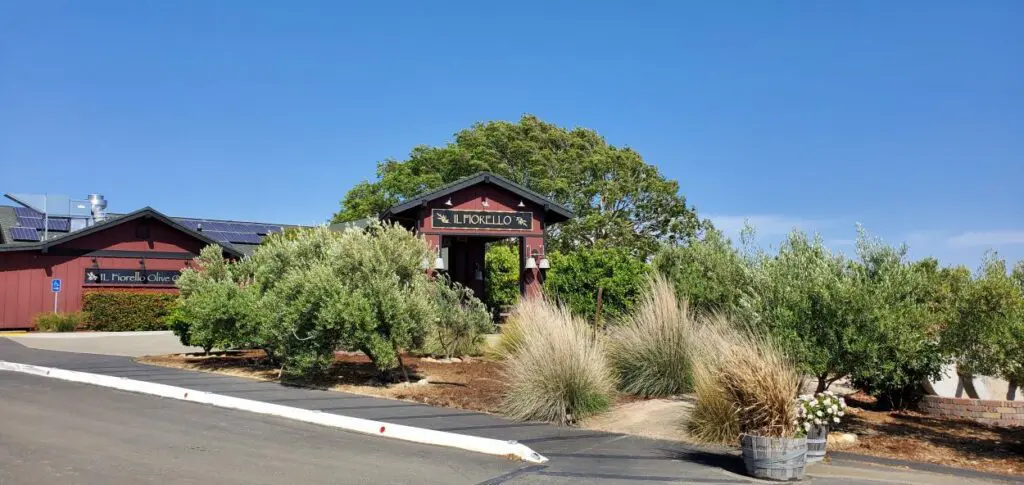
Allison Levine is the owner of Please The Palate, a boutique agency specializing in marketing and event planning for the wine and spirits industry. With over 15 years of experience in communications, marketing, and event planning, Allison is passionate about the world around her and the diverse people in it. Allison is a freelance writer and contributes to numerous publications, as well as her blog at www.pleasethepalate.com. She is the host of the podcast WineSoundtrack USA where she interviews winemakers and winery owners who share their stories, insights, and some humorous anecdotes. She also co-hosts a wine video series on YouTube called Crush On This. Allison holds a master’s degree in International Communications with a focus on cross-cultural training from the American University School of International Service. She also holds a WSET Level 3 Certificate from the Wine & Spirits Education Trust (WSET) and is a member of the Circle of Wine Writers.


